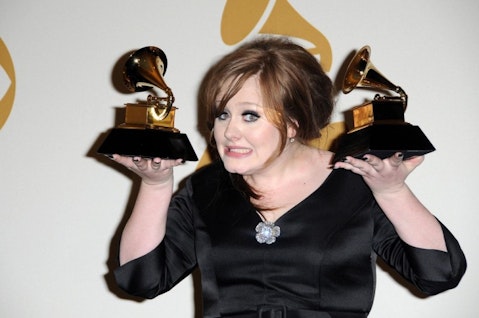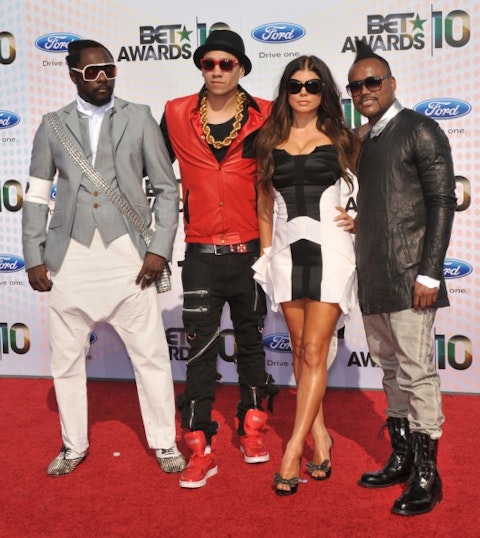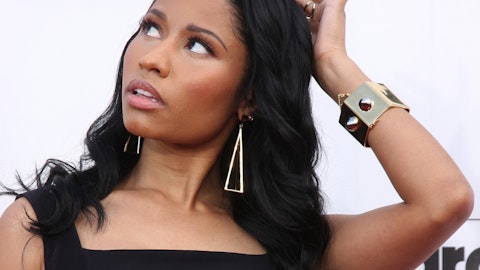In today’s world of music it is hard to stay original, while there are more musicians than ever. Sometimes there is a feeling that nothing new can emerge on the music scene, and everything is reduced to recycling. Covers are popular now more than ever, and artists are struggling to come up with something original and different.
The truth is that every musician is influenced by other artists. Similarities in sound and overall music feel are unavoidable, but there are some musicians that cross the line into music plagiarism. We are witnesses to a great number of accusations in the last few years, where one artist claims that another one copied the parts of his song and presented it as his own work, most of them ending up in court.
The most recent music artist accused of plagiarism is Adele, who’s been breaking sales records with her album “25”. It turns out that she may have done some borrowing without telling anyone. Her ballad “Million Years Ago” written with Greg Kurstin was found to have some similarities to the 1985 song “Acilara Tutunmak” by Kurdish singer Ahmet Kaya. Kaya was born in Turkey but declared himself a Kurd, only to be exiled to Paris where he lived until his death in 2000.
The first ones to notice the similarities were Kaya’s fans. Kaya’s music is cherished by Kurds because his songs are directed towards protest and social justice, criticizing the unfair status of the Kurds in Turkey. Fans are saying that “Million Years Ago” has too much similarity with Ahmet Kaya’s Acilara Tutunmak to be just a coincidence and that Adele “stole the song from them.”

s_bukley / Shutterstock.com
Music critics had already offered their opinion on the case, one of them being Turkish music critic Naim Dilmener, who said for the Anadolu news agency that, although some similarities can be spotted between the songs, there isn’t much of them.
As you can see in the comparison below, there are some parts of the song that have similar melody with slight variations.
Not everyone shares the opinion that the song was plagiarized, since even some of Kaya’s fans are positive that the songs are just slightly alike and plagiarism is out of the question. Their opinion is shared by Gulten Kaya, Ahmet’s widow. When approached by local newspapers to comment on the case, she said that “Adele is just too big of a star to copy someone.” There was still no comment on the matter by Adele or her record label.
While we wait to see how this case will develop, we must remind you that this isn’t the first time Adele has been accused for plagiarism. Her record breaking single “Hello” also had its controversies. Some claim that for this song she borrowed a little bit from Tom Waits’ “Martha.” Adele’s record label admitted that Tom Waits was one of the influences on the album, but denied the allegations. Also Lionel Ritchie is reportedly considering filing a suit, because he thinks Adele’s “Hello” is a rip off of his own hit “Hello” from 1983. If this goes out to court, things could get messy.
If the claiming artist proves that there was in fact music plagiarism present, he is in for a hefty reward, not just from the artist but from his record company as well. Sony famously was ordered to pay more than $4.2 million in 1994, after it has been discovered that Michael Bolton’s 1991 pop hit “Love Is a Wonderful Thing” is in fact a ripoff of the 1964 Isley Brothers song of the same name. One of the recent record labels to get accused was Universal Music, who were found liable along with Pharrell Williams and Robin Thicke for coping Marvin Gaye’s 1977 hit “Got To Give It Up” on their song “Blurred Lines.” Universal was also sued for plagiarism for Nelly Furtado’s song “Do It,” but the case was dismissed.
Next we have listed some of the most famous cases of successful music plagiarism suits. Music plagiarism is taken very seriously in the past few decades, and these cases are a clear proof for that.
5. Johnny Cash vs. Gordon Jenkins
Johnny Cash had to pay $75,000 to Gordon Jenkins for plagiarizing his 1953 song “Crescent City Blues.” The song was plagiarized on Cash’s hit single “Folsom Prison Blues.”
4. George Harrison vs. Bright Tunes Music Corp.
George Harrison was accused of plagiarizing “He’s So Fine” from a band called the Chiffons on his single “My Sweet Lord.” George Harrison’s record label tried to smooth things up, offering settlement of $148,000. The settlement was not accepted, and Bright Tunes Music Corp. eventually won $587,000.
3. The Black Eyed Peas vs. Orrin Lynn Tolliver
A disc jockey from Ohio, Orrin Lynn Tolliver, Jr. sued The Black Eyed Peas for using his song “I Need a Freak” as a sample for “My Humps.” Jury ordered James McCants, in whose studio the original song was recorded and who allowed the sampling, to pay around $1.2 million for unearned profits and copyright infringement damages.

Featureflash / Shutterstock.com
2. Michael Bolton and Sony vs. Isley Brothers
We already talked about this one in the intro. This lawsuit stands as one of the heaviest in the history of music plagiarism. In 1994 a jury found Michael Bolton and his record company Sony guilty of plagiarizing the Isley Brothers’ “Love Is a Wonderful Thing” and ordered $4.2 million in damages. Converted to today’s money, that would be more than $8 million. Bolton and Sony appealed the decision and Bolton claimed he had never even heard the song. In 2001 the Supreme Court declined to review the decision, effectively finalizing the lower court ruling.
1. Pharrell Williams and Robin Thicke vs. Marvin Gaye’s estate
This is the latest big successful case over music plagiarism. In 2013, Nona, Frankie, and Marvin III, the children of American soul singer Marvin Gaye, sued Pharrell Williams and Robin Thicke for using their father’s single “Got to Give It Up” to create their hit song “Blurred Lines.” Williams and Thicke denied the allegations and claimed that they have created the song independently. The Los Angeles jury didn’t buy the story, and they were ordered to pay nearly $7.4 million in damages.





